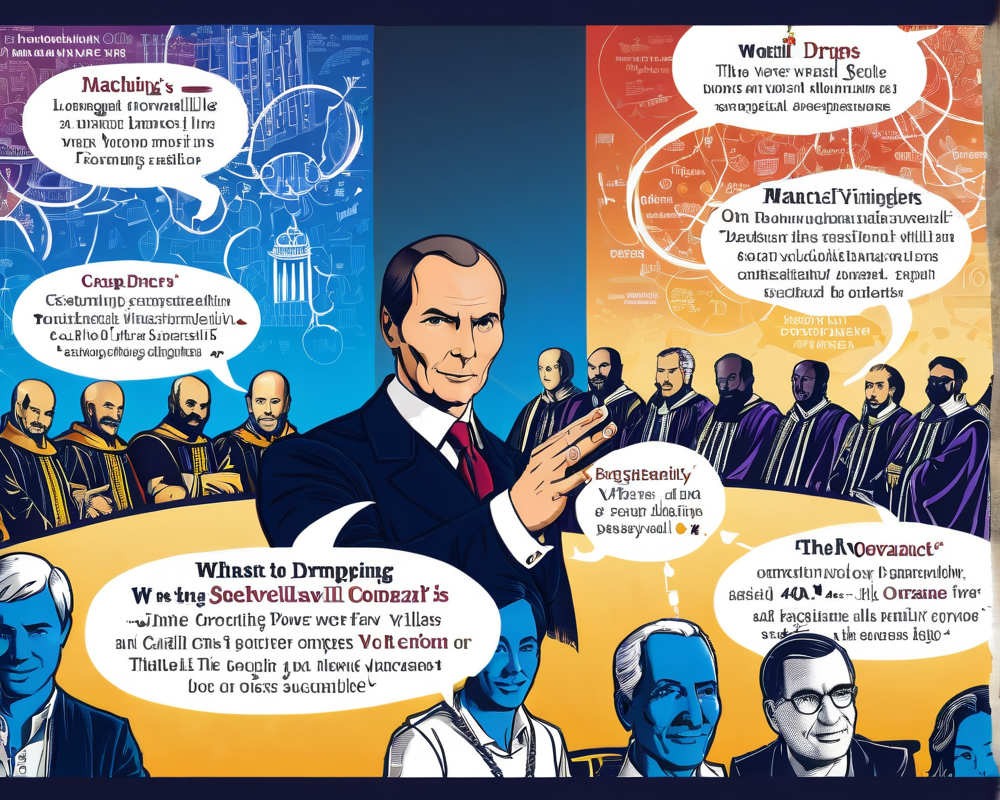Understanding Machiavelli in a Modern Context
Niccolò Machiavelli, a name that often brings to mind images of cunning political maneuvering and rich Renaissance history, is finding unexpected relevance in today’s decentralized organizations. His principles, famously laid out in The Prince, provide a unique roadmap for addressing governance challenges faced by decentralized autonomous organizations (DAOs). Miles Jennings from a16z explores these concepts, suggesting that we can learn a thing or two from this 500-year-old wisdom.
The Autocratic Drift of Organizations
One of Machiavelli’s core ideas is the tendency of organizations to morph into autocracies. Jennings argues that to combat this natural inclination within DAOs, governance should be minimized. By shifting many decisions to clients or a third-party layer, DAOs can alleviate the burden of governance. Imagine a DAO functioning more like a well-oiled machine where the necessary decision-making is streamlined, allowing for greater responsiveness without bogged-down bureaucracy. Talk about running a tight ship!
Counterbalancing Power: A Machiavellian Necessity
Another Machiavellian principle Jennings tackles is the distribution of power. To prevent dominance by a select few, DAOs should consider a bicameral governance model reminiscent of the U.S. Congress. This would allow for more checks and balances, essentially having a House of Representatives and a Senate within decentralized governance. Picture this: one group deliberates and debates while the other plays the role of the watchful guardian, ensuring that power doesn’t spiral out of control. Sounds reasonable, right?
Churn: The Spice of Leadership
In true Machiavelli fashion, Jennings stresses the importance of ‘churn’ within the leadership class of DAOs. It’s not enough to let leaders settle into power. New voices must consistently break through, disrupting the status quo. Jennings warns that without this churn, the leadership will cling to their comfy positions, pushing against change like a kid clutching their last cookie. To avoid a static power dynamic, DAOs should implement measures that allow fresh ideas and leadership to flourish.
Enhanced Accountability through Lockup Mechanisms
Finally, Jennings advocates for accountability measures such as lockup mechanisms within DAOs. These allow stakeholders to have a real say in the governance process while also setting expectations for leaders to remain responsible. As Machiavelli predicted, groups often struggle with holding leaders accountable; however, these structures could create a culture of responsibility and trust. It’s like establishing that one friend who always ensures the group stays on track during hangouts—you need that friend!
Conclusion: A Brave New World of Decentralization
In closing, Jennings encapsulates the essence of Machiavellian thought for modern DAOs: “Web3 should triumph over web2 through decentralization, which reduces censorship and promotes liberty.” By fostering competition, incentivizing dissent, and strategically employing non-token-based voting methods, DAOs can truly harness the spirit of Machiavelli to innovate and empower communities around the globe. Who knew a 15th-century politician could hold the key to unlocking the future of governance?




